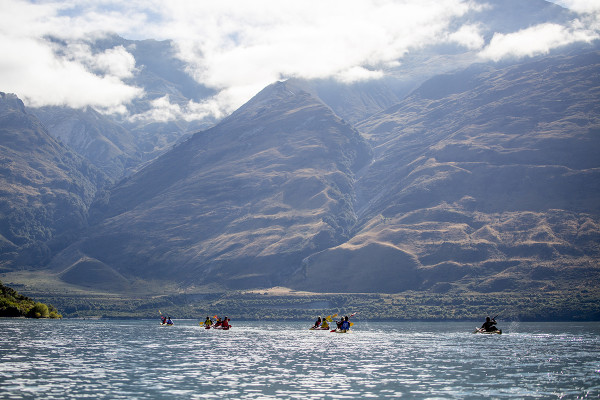Whether you were lucky enough to experience 2024’s total solar eclipse first-hand or, like us, had to enviously watch it through a screen, one thing’s for sure: we’ve all been frantically asking, ‘when is the next solar eclipse?’. It’s natural to want in on the action. Eclipses are a phenomenon straight out of a sci-fi film, and here in the UK, we won’t experience a total one until 2090. And while you never need an excuse to get away, chasing one of the future solar eclipses around the globe is the perfect reason to indulge in a travel adventure infused with cosmic wonder. So, grab your eclipse glasses and get ready to witness one of the world’s most magnificent sights.
- August 2026 – Iceland and Spain
- August 2027 – Egypt and Morocco
- July 2028 – Australia and New Zealand
- November 2030 – South Africa
August 2026 – Iceland and Spain
If you find yourself asking Google, ‘when is the next solar eclipse in Europe?’ the good news is you only have to wait until 2026, when all eyes fall on Iceland and Spain. Iceland will be eagerly anticipating its first total solar eclipse since 1954, while Spain will be spoilt with this spectacle again in 2027. Luckily for moon-shadow seekers, this event will take place on the 12th August, when the sun has sizzled Spain and melted away Iceland’s bitter chill. Sounds like prime holiday time if you ask us. So, whether you’re after sand, sangria and siestas in Spain or bubbling hot springs in Iceland, make sure you aim your (protected) eyes at the sky come 12th August.
August 2027 – Egypt and Morocco
We might be biased, but cruising down Egypt's Nile on the Steam Ship Sudan or the Flâneuse du Nil is a travel experience like no other. And if the formidable pharaonic ruins aren’t enough, why not throw in a solar eclipse for extra measure? On the 2nd August 2027, make sure you’ve bagged yourself a room onboard, as Luxor – one of the Nile’s best stops – will witness an impressive six minutes and 22 seconds of shadowy skies, around a minute shy of the longest total eclipse time. If staying on solid land is more your thing, fear not. Morocco’s Tangier is also in on the eclipse action, and the white-washed city will be plunged into darkness for a magical four minutes and 50 seconds.

Image by Sébastien Zanella.
July 2028 – Australia and New Zealand
If you’re a fan of far-flung future travel plans, 2028’s eclipse is the one for you. While Australia and New Zealand’s scorching sun turns down the heat in July, it will still impress when it slips behind the moon. Time your Australian adventure so you’re in Syndey on the 22nd July 2028, and you’ll be bang in the middle of the eclipse’s path, watching as the Opera House plunges into darkness. Over in New Zealand, bundle up and head to Queenstown or Dunedin to witness the total solar eclipse, before making the most of the cooler climes and tackling the great outdoors (without breaking a sweat).

Image by Aro Ha.
November 2030 – South Africa
Despite how hard we protest, 2030 will roll around quicker than we like. So why not plan a solar eclipse-themed safari for its arrival? The spectacle is headed for South Africa’s skies on the 25th November, a gloriously crowd-free time to visit. You’ll want to be in Durban to snag the main event’s best seats, before using the city as a gateway to some of the country’s greatest game reserves teeming with wildlife. An adventure that combines natural wonders both on the ground and high up in the cosmos? Sign us up.
Written by Evie Buller | Header Image by Pia Riverola.
